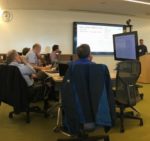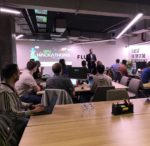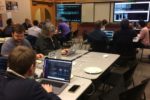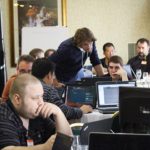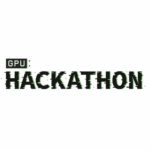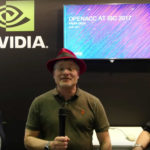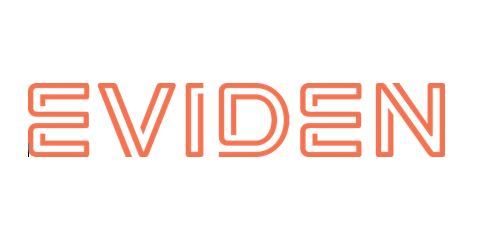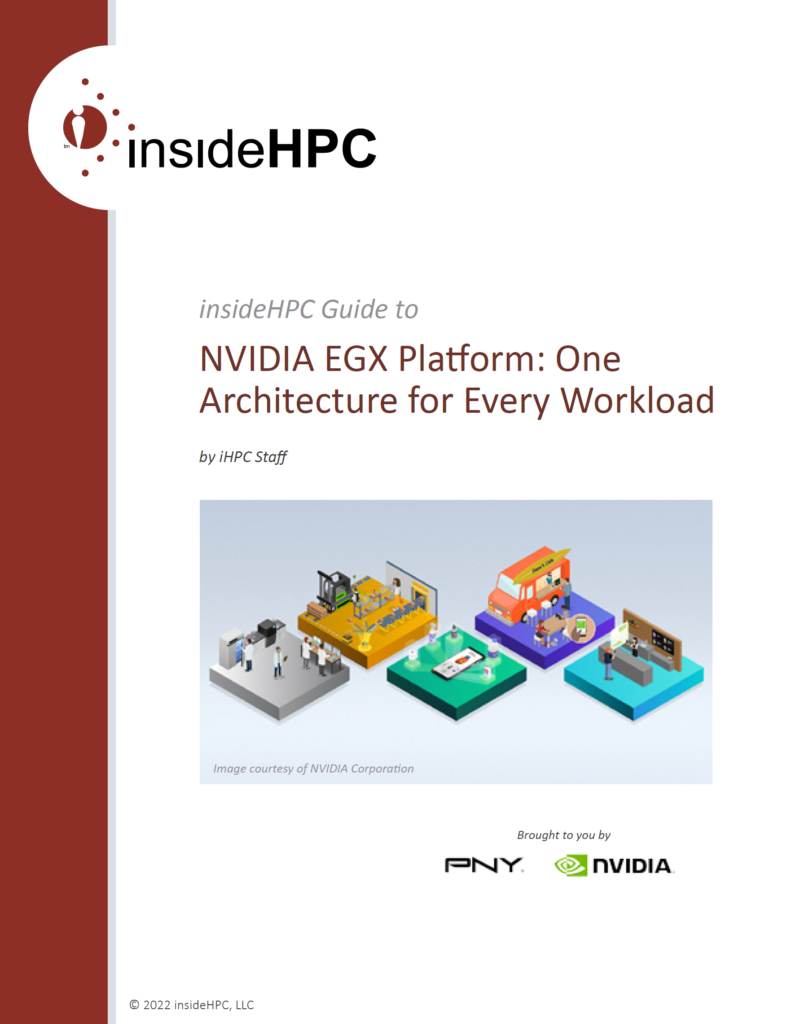The Argonne Leadership Computing Facility, in collaboration with NVIDIA, will host a free GPU hackathon on July 19 and July 26-28, 2022. Applications to participate are due May 24, 2022. More information is available here. Those with questions should contact ALCF at: training@alcf.anl.gov The multi-day virtual event is designed to help teams of three to […]
DOE INCITE program seeks proposals for 2021
The DOE INCITE program has issued its Call for Proposals. “Open to researchers from academia, industry and government agencies, the INCITE program is aimed at large-scale scientific computing projects that require the power and scale of DOE’s leadership-class supercomputers. The program will award up to 60 percent of the allocable time on Summit, the OLCF’s 200-petaflop IBM AC922 machine, and Theta, the ALCF’s 12-petaflop Cray XC40 system.”
Video: Jack Wells from ORNL on his new role as VP of OpenACC.org
Today OpenACC.org announced a newly elected vice president reflecting increased user influence within the organization. Additionally, the organization announced its 2019 Annual Meeting will be hosted by RIKEN Center for Computational Science (RIKEN R-CCS) in Japan, as well as the schedule of upcoming hackathons and bootcamps around the world.
GPU Hackathon gears up for Future Perlmutter Supercomputer
NERSC recently hosted its first user hackathon to begin preparing key codes for the next-generation architecture of the Perlmutter system. Over four days, experts from NERSC, Cray, and NVIDIA worked with application code teams to help them gain new understanding of the performance characteristics of their applications and optimize their codes for the GPU processors in Perlmutter. “By starting this process early, the code teams will be well prepared for running on GPUs when NERSC deploys the Perlmutter system in 2020.”
Perth’s GPU Hackathon looks to speed research computing
The second annual GPU Hackathon kicked off in Perth this week, a collaboration between Oak Ridge National Laboratory, NVIDIA and the Pawsey Supercomputing Centre. Attended by five teams from across Australia, the five-day hack event centers around adapting scientific code for accelerated computing. “We’re excited to continue our collaboration with international research facilities”, said Mark Stickells, Executive Director at Pawsey. “Pawsey accelerates scientific discovery through technology, expertise and collaboration; and this is demonstrated by the GPU Hackathon. The Hackathon is a great example of collaboration and engagement with industry, academia and government.”
NERSC Hosts GPU Hackathon in Preparation for Perlmutter Supercomputer
NERSC recently hosted a successful GPU Hackathon event in preparation for their next-generation Perlmutter supercomputer. Perlmutter, a pre-exascale Cray Shasta system slated to be delivered in 2020, will feature a number of new hardware and software innovations and is the first supercomputing system designed with both data analysis and simulations in mind. Unlike previous NERSC systems, Perlmutter will use a combination of nodes with only CPUs, as well as nodes featuring both CPUs and GPUs.
Call For Proposals: Worldwide GPU Hackathons in 2019
ORNL has issued its Call for Proposals for a set of global GPU Hackathons in 2019. “A GPU hackathon is a 5-day coding event in which teams of developers port their applications to run on GPUs, or optimize their applications that already run on GPUs. Each team consists of three or more developers who are intimately familiar with (some part of) their application, and they work alongside two mentors with GPU programming expertise. The mentors come from universities, national laboratories, supercomputing centers, government institutions, and vendors.”
Call for Applications: NCSA GPU Hackathon in September
NCSA is now accepting team applications for the Blue Waters GPU Hackathon. This event will take place September 10-14, 2018 in Illinois. “General-purpose Graphics Processing Units (GPGPUs) potentially offer exceptionally high memory bandwidth and performance for a wide range of applications. A challenge in utilizing such accelerators has been learning how to program them. These hackathons are intended to help overcome this challenge for new GPU programmers and also to help existing GPU programmers to further optimize their applications – a great opportunity for graduate students and postdocs. Any and all GPU programming paradigms are welcome.”
CesgaHack GPU Hackathon Returns to Spain in March
The Galicia Supercomputing Center (CESGA) and Appentra Solutions will host a GPU Hackathon March 5-9 in Santiago de Compostela. “CesgaHack18 aims to help scientists and developers accelerate the execution of their scientific simulation applications using the hardware, software and a team of expert mentors in optimization, parallelization and execution of simulation programs.”
OpenACC Brings Directives to Accelerated Computing at ISC 2017
In this video from ISC 2017, Sunita Chandrasekaran and Michael Wolfe describe how OpenACC makes GPU-accelerated computing more accessible to scientists and engineers. “OpenACC is a user-driven directive-based performance-portable parallel programming model designed for scientists and engineers interested in porting their codes to a wide-variety of heterogeneous HPC hardware platforms and architectures with significantly less programming effort than required with a low-level model.”


